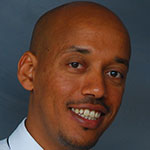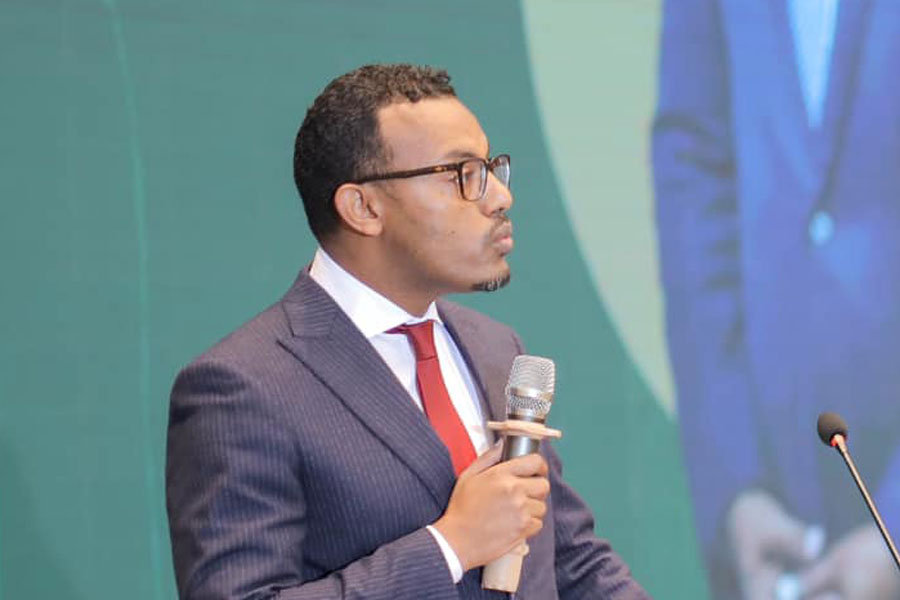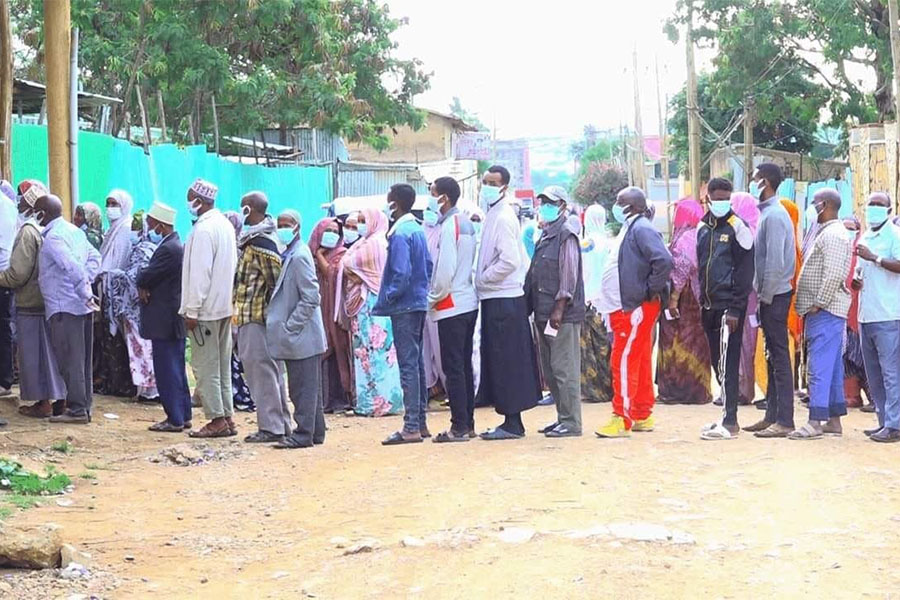
Nov 7 , 2020
By Tsegaab Teklu
Elections have consequences as they touch every electorate’s life and shape the direction of a nation for long durations. Though voters are the ultimate decision makers, it is natural for all other participants of the system to try to have a say in the hiring process, writes Tsegaab Teklu (@tsegaab), an enterprise performance management and data-driven leadership professional in the United States. The opinions held here are that of the author and do not represent that of any organisation.
At a time when the United States election is sucking the air out of the global media, one cannot help but wonder about the much anticipated upcoming Ethiopian elections. Ethiopia is at a crossroads between the past and the future, with hopes of setting the cornerstones for free and fair elections and stability.
Democratic elections are the hiring processes of the executive and legislative bodies of a government. Aside from the political, security and social direction of Ethiopia, the elected branches of the government will be in charge of designing the national strategy for an economy that has 3.4 trillion Birr in annual GDP, setting priorities, managing the nearly half a trillion Birr federal government budget, establishing accountability and following up on the execution.
"Elections have consequences" as they touch every electorate’s life and shape the direction of a nation for the duration beyond the term. Though voters are the ultimate decision-makers, it is natural for all other participants of the system to try to have a say in the hiring process. That is why all stakeholders flex their muscles to push their agenda in election years. For this reason, it is important to pause and assess all forces competing for each vote.
How free and fair the upcoming Ethiopian election is going to be is yet to be seen. Hoping for the best, taking a stab at the major players in countries that have much more experience in elections gives a glimpse of insight into what Ethiopia might see down the road.
In an ideal perfectly democratic system, one vote is equivalent to a decision by one person who has a perfect knowledge of the candidates’ goals without being influenced by external factors. It also assumes that elected candidates will pursue the interests of the electorate without being influenced by externalities. This assumption in the real political world might be taken as too naive and far-fetched.
Besides voters, the most direct way entities try to influence elections is by investing capital and exercising foul play within or outside of the constitutional framework. Geopolitical interest and influence is a topic in and of itself.
In countries where the election campaign finance laws allow corporations and special interest groups to directly or indirectly get involved, money plays a major role. The 2020 US election's cost is estimated to hit a record 14 billion dollars. To put it into context, the election's estimated cost is equivalent to 13pc of Ethiopia's annual GDP for the past fiscal year. Whoever is behind this much investment expects something in return. Following the money gives us a high level insight into it.
The biggest share of the money comes from small and large individual contributions, according to the nonprofit that tracks money in US politics, Opensecrets. Individuals are motivated by the ideas and the future they would like to see for their children.
Corporations and special interest groups also put their money into the elections to serve their interest. Tax breaks, infrastructural advantages, de-regulation, employee protections and minimum wage laws are among topics business organisations focus on.
Hypothetically speaking, an organisation that lacks environmental and water pollution concerns would naturally gravitate towards candidates or a party that are for easing environmental regulations. The same approach holds true for interest groups that advocate for candidates that are in line with their interest.
Going beyond such micro support, corporations and groups with similar interests join forces to advance their goals. In the United States, Super Political Action Committees (Super PACs) play a key role in this. Super PACs are groups that can raise unlimited amounts of money and use it for or against a political candidate by running ads, making calls and sending mailers to voters. By November 1, 2020, 2,194 super PACs raised 2.1 billion dollars and spent 1.8 billion in the 2020 US election, according to Opensecrets.
Foul play is another way stakeholders try to influence voters’ decisions. Some regional and local officers go the distance to ensure the values they hold are kept alive. For some, their office is the bread and butter of their life, and they might justify winning at any cost. The average citizen has to live with the consequences of their decision. The most blatant way of snatching elections in reforming democracies takes the form of oppression by denying platforms, intimidations and persecution.
Advanced democracies are not clean from foul play either; it just takes a different form under the constitutional framework. This is an area that makes it clear that democratic systems are not built at the flip of a switch, rather through progresses over generations. Some examples of surgical foul play include voter suppression and gerrymandering. Different forms of voter suppression aim at disenfranchising the part of the electorate that is less likely to vote for the incumbents.
Gerrymandering on the other hand draws election territories such as parliamentary election districts, zones, sub-cities and kebeles“in a way that gives one political party an unfair advantage.”
There are and will always be competing interests in a nation with major socioeconomic differences. To build a thriving democratic system, it is important to recognise that there would always be interests that are fundamentally different from one’s position. There is always a chance for a little less than one half of the society not being happy with an election’s results.
Differences should not make two groups mortal enemies though, with the view that disagreements can be hashed out over discussions, debates and finally elections. Determining the winning ideas through ballots should be encouraged. In any election, the ideas one deeply cares about have as much a winning chance as losing.
For this reason, a culture of conceding the term to the individual or party that has been given an electoral mandate should be nurtured. Resorting to any form of violence should be condemned.
It is just as critical to keep in mind that no election has ever solved every problem.
“One election won't make everything perfect—but it could make things better. And that's why it’s worth taking a few minutes to vote,” as former President of the United States Barack Obama has said.
PUBLISHED ON
Nov 07,2020 [ VOL
21 , NO
1071]


Letter To Editor | Aug 19,2024

Radar | Mar 02,2024

Letter To Editor | Feb 29,2020

Sunday with Eden | Oct 31,2020

Radar | Sep 19,2020

Radar | May 18,2024

Fortune News | Jun 01,2019

Fortune News | Nov 16,2024

Viewpoints | Jul 20,2024

Fortune News | Sep 30,2021

My Opinion | 131673 Views | Aug 14,2021

My Opinion | 128039 Views | Aug 21,2021

My Opinion | 126001 Views | Sep 10,2021

My Opinion | 123624 Views | Aug 07,2021

Dec 22 , 2024 . By TIZITA SHEWAFERAW
Charged with transforming colossal state-owned enterprises into modern and competitiv...

Aug 18 , 2024 . By AKSAH ITALO
Although predictable Yonas Zerihun's job in the ride-hailing service is not immune to...

Jul 28 , 2024 . By TIZITA SHEWAFERAW
Unhabitual, perhaps too many, Samuel Gebreyohannes, 38, used to occasionally enjoy a couple of beers at breakfast. However, he recently swit...

Jul 13 , 2024 . By AKSAH ITALO
Investors who rely on tractors, trucks, and field vehicles for commuting, transporting commodities, and f...

Jun 28 , 2025
Meseret Damtie, the assertive auditor general, has never been shy about naming names...

Jun 21 , 2025
A well-worn adage says, “Budget is not destiny, but it is direction.” Examining t...

Jun 14 , 2025
Yet again, the Horn of Africa is bracing for trouble. A region already frayed by wars...

Jun 7 , 2025
Few promises shine brighter in Addis Abeba than the pledge of a roof for every family...

Jun 29 , 2025
Addis Abeba's first rains have coincided with a sweeping rise in private school tuition, prompting the city's education...

Jun 29 , 2025 . By BEZAWIT HULUAGER
Central Bank Governor Mamo Mihretu claimed a bold reconfiguration of monetary policy...

Jun 29 , 2025 . By BEZAWIT HULUAGER
The federal government is betting on a sweeping overhaul of the driver licensing regi...

Jun 29 , 2025 . By NAHOM AYELE
Gadaa Bank has listed 1.2 million shares on the Ethiopian Securities Exchange (ESX),...